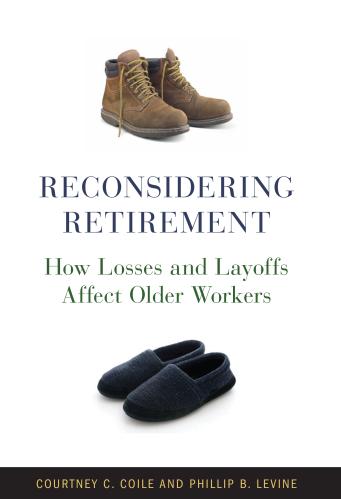Studies in this week’s Hutchins Roundup find that the lack of inflation despite falling unemployment does not reflect poorly measured slack, there is a gender pay gap in the gig economy, and more.
Want to receive the Hutchins Roundup as an email? Sign up here to get it in your inbox every Thursday.
The lack of inflation despite falling unemployment does not reflect poorly measured slack
A major current economic puzzle is the persistently low rate of inflation despite falling unemployment and improving economic conditions in the United States and Europe. By looking at nine different measures of slack in the U.S. economy, James Stock of Harvard and Mark Watson of Princeton determine that the relationship between economic activity and inflation has been weak since 2000, regardless of how slack is measured. To address possible inflation mismeasurement, they create a new cyclically sensitive price index that excludes sectors where prices are poorly measured and assigns weights to the remaining sectors based on how sensitive their prices are to local demand conditions. The cyclically sensitive price index has had a stronger relationship with economic slack since 2000 and shows a slight rise in inflation in the U.S. in recent years, but not in the European Union where cyclically sensitive inflation is still flat. Because the cyclically sensitive index can be computed in real time, it can provide a useful window on inflation as real economic conditions change, the authors say.
There is a gender pay gap in the gig economy, but not because of customer discrimination
The gig economy provides substantial flexibility in how and when to work. Some speculate that this flexibility may benefit women, who often face more binding time constraints, and might even eliminate the gender pay gap. Using data on over 1 million Uber drivers, Cody Cook of Stanford and coauthors estimate that male Uber drivers earn roughly 7 percent more per hour than female drivers despite Uber’s standardized pay schedule. Three factors drive this gender pay gap, they find. Male drivers tend to live near and drive in more lucrative locations, and are willing to drive in areas with higher crime and more drinking establishments. Men also accumulate more experience because they drive more hours per week and remain Uber drivers for longer. Experienced drivers, in turn, earn more because they learn where and when to drive and how to strategically cancel and accept trips. Finally, men drive faster on average and are therefore quicker to complete Uber trips. The authors find no evidence that customers discriminate by gender. This suggests that gender pay gaps can persist even in the absence of discrimination and in flexible labor markets, they say.
The Great Recession would have been milder if not for disruptions to financial intermediation
Since the financial crisis, research has focused on how deteriorating household balance sheets and financial disruptions contributed to the economic downturn. Mark Gertler and Simon Gilchrist of New York University use quarterly state level data on house prices, mortgage debt, employment and a measure of banking distress to explore the relative importance of these two channels. They confirm a common finding in the literature that the household balance sheet channel is important for regional variation in employment. However, they also find that the recession would have been relatively mild were it not for the disruptions in financial markets. They show that financial disruptions alone can account for nearly two-thirds of the decline in employment from 2007 to 2010.
Chart of the week: Young Americans are not moving homes as often as they used to

Quote of the week:
“In my view, state and local government financing should be designed to buffer the economy during recessions, or at a minimum should not reduce the stimulative effects of spending when the economy is most troubled. … [S]ince 1960, state and local government spending tends to decline when the unemployment rate is high, and increase when the unemployment rate is low. This pattern likely arises from the fall in state and local tax revenues during economic downturns, coupled with a desire to spend within one’s means – after all, most state and local governments face balanced budget requirements. But it tends to aggravate economic downturns,” says Eric Rosengren, president of the Federal Reserve Bank of Boston.
“I would suggest, however, that a number of steps can be taken by officials that would lessen the problematic impact. First, the cyclicality of revenue sources for state and local governments can be lessened – in other words, revenue streams might be redesigned to move less cyclically if other competing goals allow. For example, states that are highly dependent on capital gains taxes are much more likely to experience funding shortfalls during economic downturns, so if possible, reducing this dependence could help. Second, steps can be taken so that the fiscal health of a state does not drive substantial cuts during downturns. … Ideally, a time like now – when the national economy is growing and employment is robust – would be an opportunity, it seems to me, to prepare for the next downturn. This would perhaps include shoring up state finances, reducing unfunded pension liabilities, and significantly increasing ‘rainy day’ funds.”
The Brookings Institution is committed to quality, independence, and impact.
We are supported by a diverse array of funders. In line with our values and policies, each Brookings publication represents the sole views of its author(s).










Commentary
Hutchins Roundup: Slack and inflation, the gender pay gap in the gig economy, and more
June 28, 2018